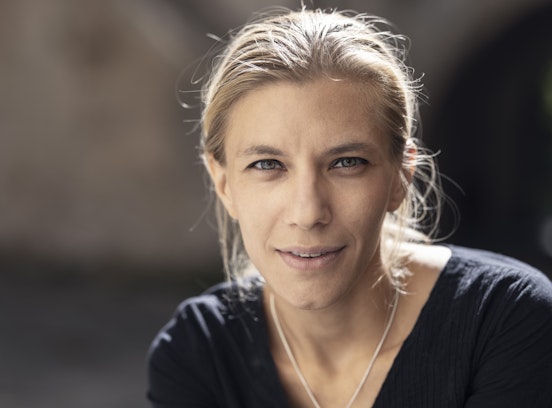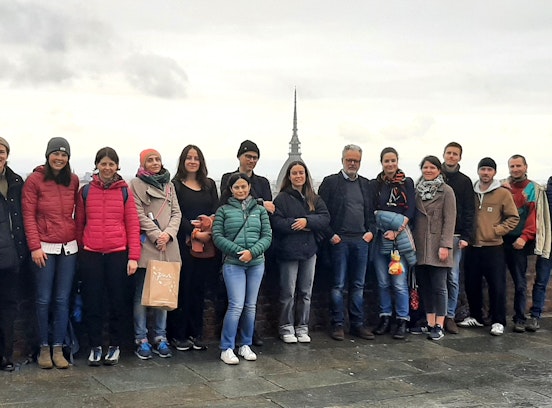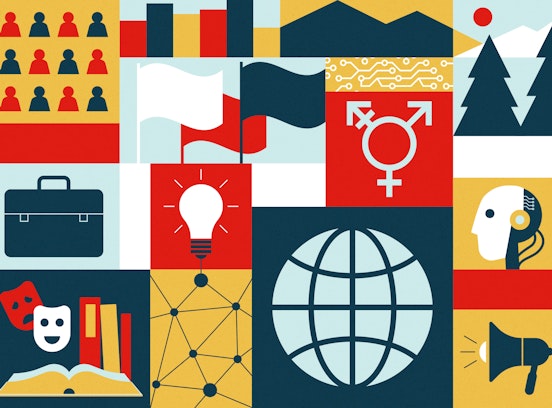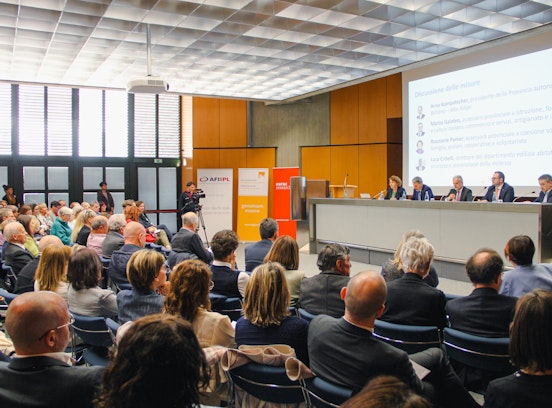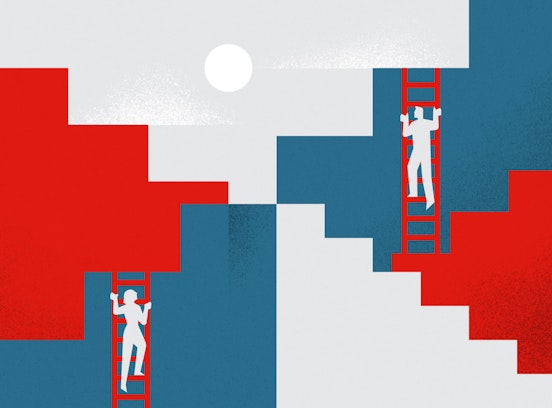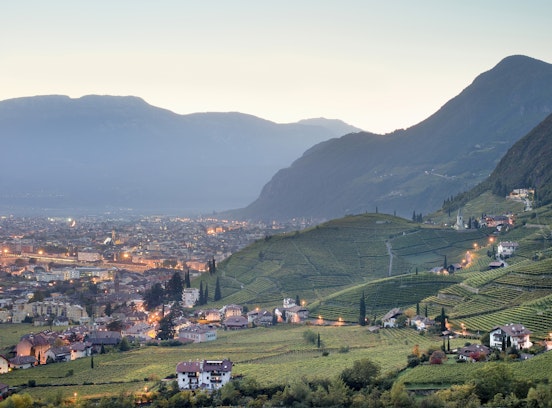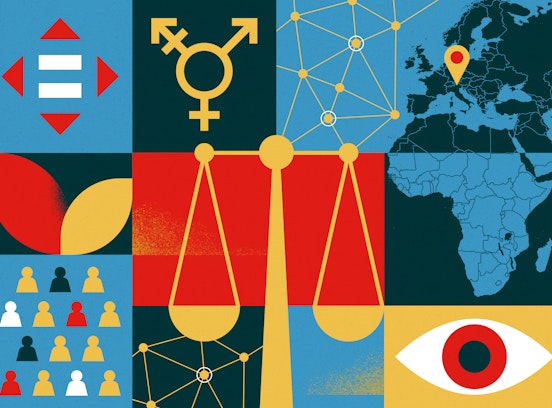Center for Advanced Studies - News & Events - Doing Global Gender: Globalization Week focuses on gender justice
Doing Global Gender: Globalization Week focuses on gender justice
Eurac conference with Judith Butler, Oyeronke Oyewumi, Ina Praetorius, Corey Wrenn, Julia Unterberger, Sarah Trevisiol, Barbara Plagg and many more
- Deutsch
- English
- Italiano
For the third time now, Eurac Research’s Center for Advanced Studies held its Globalization Conference - this time titled "Doing Global Gender. Perspectives on Gender and Re-Globalization". By having Judith Butler and Oyeronke Oyewumi join, the young researchers at the research center succeeded in bringing the most well-known thinkers of our time and pioneers of gender studies to South Tyrol for a virtual exchange. A panel discussion with local experts additionally emphasized the need for the gender debate to become a cross-cutting issue in all areas of life and business on the domestic level as well.
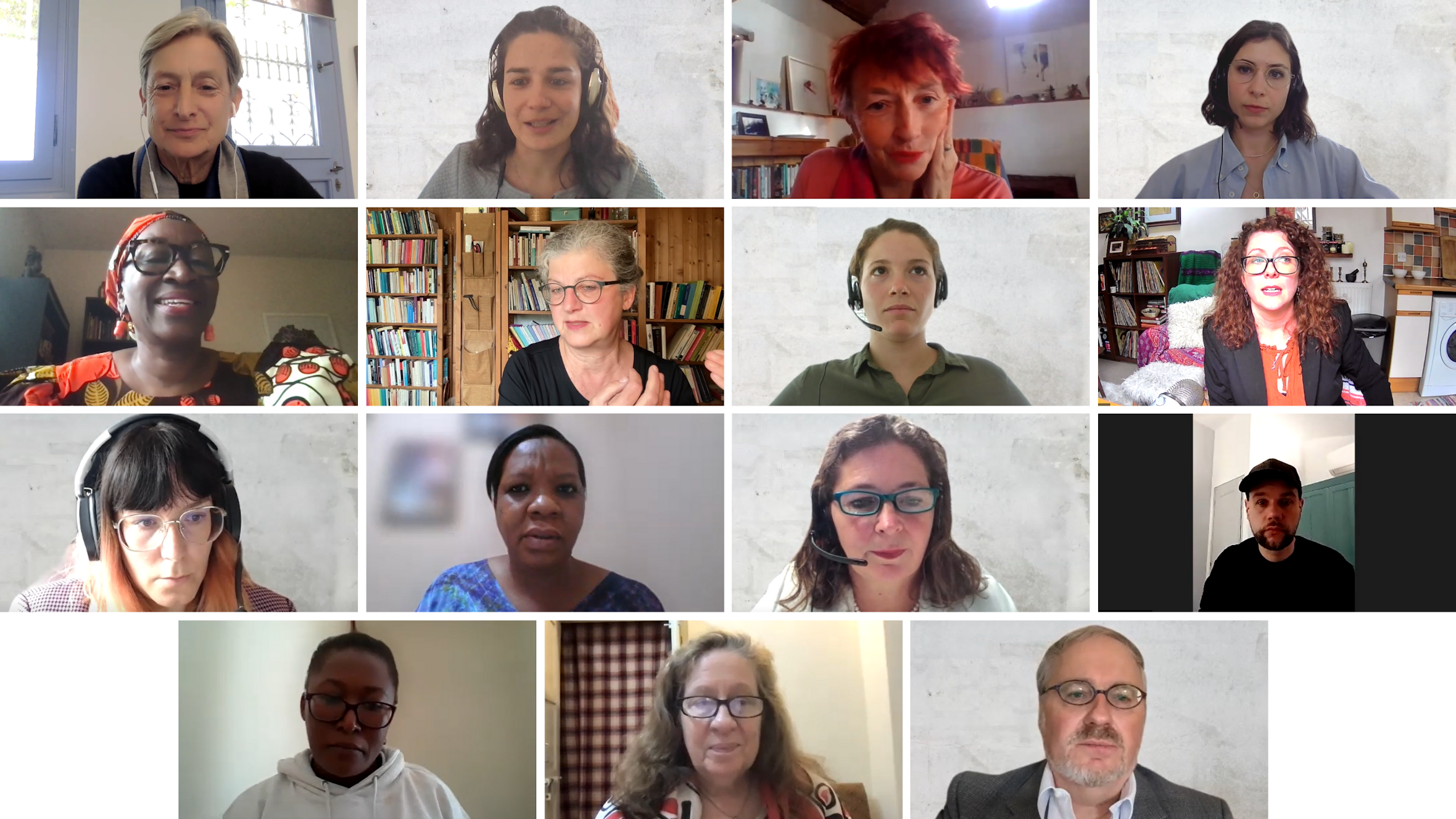 Photo: Eurac Research
Photo: Eurac ResearchGender triggers and polarizes. The mere mention of the term tends to provoke strong reactions among some. Judith Butler, Maxine Elliot Professor of Comparative Literature and Critical Theory at the University of California, Berkeley, drew a complex picture of current anti-gender movements in her lecture "Who's Afraid of Gender? In most cases, these are groups that generally reject critical debate and critical thinking, people who themselves have never read any of the texts they denounce. Nevertheless, they are challenging the hard-earned rights and freedoms, acquired in recent years. Marriage for all, adoption, the right to abortion or legal protection against discrimination and hate crimes are unfortunately by no means self-evident, as shown, for example, by the current debate at the U.S. Supreme Court or the rejection of the DdL Zan anti-discrimination law last year in Italy. The failure of said bill was discussed by Arianna Miriam Fiumefreddo, President of the LGBTI+ association Arcigay South Tyrol Centaurus, and Senator Julia Unterberger. Here, too, it became evident how much the mere mention of the terms gender identity and gender divides right-wing and left-wing groups alike.
Commitment to gender justice is commitment to global justice
The commitment to gender justice is nothing less than a mission for global justice. Not only women and those who identify as such are in the foreground, but all genders, men as well as transgender and non-binary persons. It is about questioning socially ascribed gender roles, expectations, and positions of power. Gender relations are not binary, natural facts, but socially constructed. The possibilities for action and opportunities have changed over time and show that gender relations are changeable and can be shaped.
Data, such as that presented by the post-patriarchal ethicist Ina Praetorius, shows that they must change. Oxfam, one of the world's largest emergency aid and development organizations, exemplified in its studies that only eight men own as much wealth as the poorest 3.6 billion people combined, or that women and girls perform about 12.5 billion hours of unpaid care and housework every day. If these hours were monetized for women aged 15 and over, it would be a whopping $10.8 trillion a year - three times the amount the tech industry generates globally. In many places, the informal sector is larger than the formal sector and it is mainly women who carry it. For them, however, this means no job security, no wages, exploitation, abuse and insecurity.
This does not necessarily mean that women are better off in the formal sector. In the low-wage sector, for example, it is mainly women who are employed and work under equally exploitative conditions. Climate activist and co-founder of Girls for Climate Action Joanita Babirye, Margaret McLaren, Professor of Philosophy and Sexuality at Rollins College, USA, and women's rights activist Amy Oyekunle debated these issues. Julia Unterberger spoke about the long road to equal opportunities in Italy. Just how half-heartedly the state implements the EU guidelines in this regard can be seen in parental leave for fathers. In most countries, 80 percent wage continuation was provided for men on parental leave, which led to a strong uptake of paternity leave and a general mindset shift, especially in the Northern European countries. In structurally weak Italy, which has a low female employment rate as it is, a wage continuation of only 30 percent was decided upon - with a correspondingly low uptake.
It is not up to women to fight for equal rights, but above all up to men, emphasized Christoph May, founder of the Institute for Critical Men's Studies. Especially among men, resistance to gender issues is fed by fears, said Armin Bernhard, lecturer at the Free University of Bolzano. One finding from the South Tyrolean men's study is that men, when not knowing what to do, often take the path of action - and not of conversation. However, he looks towards the younger generations with hope, such as Fridays for Future, who no longer have any problems forming alliances and putting their concerns and fears center stage. The human biologist Barbara Plagg, for example, has created such an alliance by founding the Südtirol Sisters (SUSI) network. Yet she repeatedly encounters resistance with her deliberately cheeky demands - especially in politics. Civil societal engagement is not welcome in South Tyrol, but it has enormous potential when it comes to spreading knowledge about gender to all areas of society and thinking outside the box.
Questioning the western ideal of the family
The limited, often elitist perspective is a general problem of the gender discussion. It is equally problematic that the debate is mostly conducted from a Western and white perspective, as Jane Bennett, Professor of African Feminist Studies at the University of Cape Town pointed out. Oyeronke Oyewumi, Professor of Sociology, African Studies and Gender Studies at Stony Brook University, Nigeria/USA, emphasized in her lecture that it is above all the ideal image of the nuclear family from the Global North that perpetuates the binary understanding of roles - in contrast to the pre-colonial African family image, for example, which envisages many fluid identities that complement, rather than exclude each other. Throughout the Globalization Week, it became clear just how important it is to adopt an intersectional point of view and to consider the various forms of discrimination based on gender, ethnicity, disability, nationality and historical context, for example in connection with colonization.
Gender justice is closely linked to language. Although it may seem cumbersome to formulate a text in a gender-just way, current instances suffice in showing how necessary it is to rethink our terminology. "The very name of the Federal Ministry for Family Affairs, Senior Citizens, Women and Youth, for example, raises the question of what seniors, women and young people have in common that they need separate political treatment. Only one thing: they do not fit into the model of the adult able-bodied man, which still seems to serve as the standard," Praetorius emphasized and suggested instead that the ministry be renamed to Ministry for Gender and Generationally Just Social Structures. Similar efforts are being pursued by the Merano Women's Museum, as its director Sarah Trevisiol announced in the panel discussion in Bolzano. It is being considered to change the statutes and rename the museum the Gender Museum, but first it has to be clarified whether all partners of the museum will support this decision.
Sexism and patriarchal systems are not least at the root of growing social inequalities, unequal access to technology and information, or the climate crisis, Corey Wrenn, sociologist at the University of Kent, pointed out in her lecture on vegan ecofeminism. Environmental activism uses the sexualized female body to appeal for donations - for example, against the fur industry, as Wrenn criticized using the example of a PETA advertising campaign. At the same time, a politically green attitude, vegetarian or vegan diet is usually connoted as feminine, and this, despite livestock farming and meat consumption being among the biggest drivers of climate change and thus should concern all genders.
The webinar series was moderated by Eurac researchers Mirjam Gruber, Linda Ghirardello, Silvia Gigante, Zoe Krueger Weisel and Katharina Crepaz. Ingrid Kofler and Harald Pechlaner led the local panel discussion. Roland Benedikter gave the introductory lecture on gender and re-globalization. Roberta Bottarin, Vice-Director of Eurac Research, gave the welcoming address.
Video recordings
The importance of the Gender Debate for Re-Globalization and vice versa - Roland Benedikter
Challenges for Re-Globalization & Gender - Joanita Babirye, Christoph May, Margaret McLaren and Amy Oyekunle
Who’s afraid of Gender? - Judith Butler
Debating gender justices in the context of the 4th Industrial Revolution - Jane Bennett
Towards a Care-Centered Global Economy - Ina Praetorius
Vegan Ecofeminism - Corey Wrenn
Glocal Gender: Herausforderungen für Südtirol | Le sfide per l'Alto Adige



